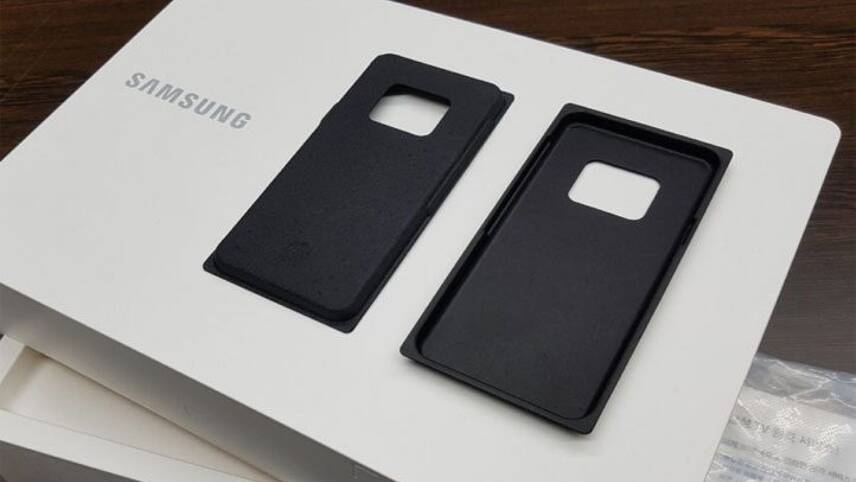Register for free and continue reading
Join our growing army of changemakers and get unlimited access to our premium content

Image: Samsung
The commitment was made as part of a string of new environmental pledges applicable to the firm’s mobile communications business, called ‘Galaxy for the Planet’. Samsung said the pledges are designed to “reduce [the business’s environmental footprint and lessen resource depletion from production to disposal of its Galaxy products”.
On mobile phone packaging, Samsung stated that it will use a hierarchy of reduce, remove and replace to tackle single-use plastics elements. Plastics currently included in mobile packaging include the peelable film used to prevent scratches to the phone in transit.
Samsung has not yet revealed which alternative materials it is exploring for this next phase of packaging changes, but has previously favoured paper-based alternatives. It first began a large-scale programme to remove plastic from consumer-facing electronics packaging in 2019.
‘Galaxy for the Planet’ also includes a commitment to ensure that all new mobile products sold from 2025 onward contain recycled material. edie has reached out to Samsung to ask whether there is a percentage target for particular types of material. At present, the firm’s statement merely confirms that it will “use various recycled materials within its products, taking their strength, aesthetics and durability into consideration”.
Samsung has stated its intention to expand and improve upcycling and trade-in offerings to collect and recycle more content. The business has collected 4.54 million tonnes of e-waste to date.
Additionally detailed in ‘Galaxy for the Planet’ is a commitment for Samsung to achieve zero-waste-to-landfill status at all mobile worksites by 2025. According to the firm’s latest annual sustainability report, it operated at a 95% recycling rate during 2020.
E-waste is notably the world’s fastest-growing domestic waste stream and, while devices live mobile phones and tablets contain valuable metals and minerals as well as metal and glass components that are often recyclable, recycling rates remain low. The UN estimates that less than 18% of the e-waste generated globally in 2019 was properly documented as recycled.
Problematic packaging
The announcement from Samsung comes as parcelLab, a business providing retail brands with fulfilment solutions, publishes the results of an analysis of 50 brands’ progress on sustainable packaging and delivery.
All brands assessed in the study are direct-to-consumer (DTC). Sectors covered include food and beverage brands like Abel & Cole and Huel; fashion brands like Everlane and GymShark; health and beauty businesses like Glossier and Glossybox and lifestyle brands like Made.com.
Almost one-third (30%) of the brands assessed include single-use plastic within their parcels. Almost one-fifth (18%) were deemed reliant on plastics for packaging, using plastics both within the parcels and as the outer packaging. Moreover, the vast majority of the brands (94%) do not present consumers with an option for less packaging at the checkout.
“Customers have shown time and time again that they are willing to change their spending habits to make environmentally conscious choices in the delivery process,” parcelLab’s founder and chief executive Tobias Bixhoidt said.
“While many brands may preach about their sustainability credentials or environmentally conscious approach to retail, they aren’t showing flexibility or willingness to allow their customers to make more eco-friendly choices where deliveries are concerned.”
Sarah George


Please login or Register to leave a comment.